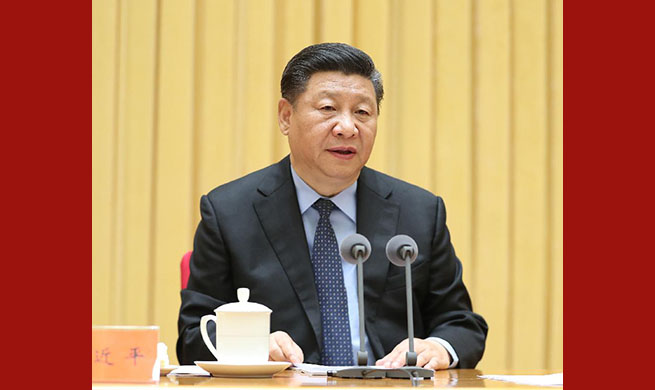by Huang Heng
SALT LAKE CITY, the United States, May 18 (Xinhua) -- "Monolingual in our country is dangerous to our future, we need to connect with the rest of the world and the most important place for us to connect is China, China is America's future," Howard A. Stephenson repeated his opinion in an exclusive interview to Xinhua.
"We cannot ignore that. No country in the world should ignore that," he said in the interview during the 11th National Chinese Language Conference held in the state of Utah from Thursday to Saturday.
Stephenson is Utah Senate National Education Coordinator, a veteran politician who has been working as a Utah State Senator for 26 years and a leading advocate for advancing language program in the Beehive State.
He said his passion for Chinese language learning began 18 years ago when he was asked to speak at a conference in Beijing, in which he found surprise that among the 1,000 college students joining the event, including those from Russia, America and China, only the Chinese were bilingual.
"I wanted that for U.S. students too. In order to compete and cooperate with China, I knew our people needed to be bilingual," he said.
Since then, with help of China's Confucius Institute, Utah became one of the successful states in the nation to promote Chinese learning in public schools, especially in field of the immersion program, which is a technique used in bilingual language education in which two languages, both English and Chinese, are used for instruction in a variety of topics, including math, science, or social studies.
According to Utah State Governor Gary Herbert, more than 20 percent of American students learning Chinese now live in his state and data provided by the Confucius Institute showed 32 elementary schools and 23 junior high schools with over 10,000 students in the state are taking Chinese classes in 2018 and nine more middle schools will join the program.
Stephenson told Xinhua that students have a choice of various languages in Utah dual language immersion, so far Spanish has the most applicants with Mandarin being second.
"We have more in Spanish because we are in this hemisphere where there are a lot of Spanish speakers, but Chinese would be first place," he said.
"Because every American parent wants the best for their child," he explained to Xinhua. Since more and more local parents believe that the Chinese language skill will increase their children's intellect and employability, they compete to be able to get their child into the immersion program.
He said the biggest challenge for the program is that there are no so many Mandarin teachers.
"That's why we are so grateful for the Confucius Institute and Han Ban teachers being supplied to our schools, these dedicated teachers who come here to teach our children and our children get the best of dual language immersion," he showed his respect to his partner.
Stephenson shrugged off the claims from some politicians saying that Chinese education programs in the Untied States pose national security concerns.
"It makes me laugh," he said, "Because I have spent hundreds of hours with Confucius Institute leaders. I have spent much time with Han Ban teachers. I know how Utah education leaders choose the Han Ban teachers. They get 250 candidates and they pick 30 of them who know how to teach math and science effectively in Mandarin."
"The fear that somehow these teachers are indoctrinating our children is outrageous, it shows up a lack of of knowledge on the part of those who are making the claims they have not looked," he said.
Stephenson revealed that he is leaving the Senate at the end of the term this November, then he plans to give his full effort to promoting dual language immersion particularly dual language immersion Chinese across the nation.
The United States should optimize those opportunities emerging out with China's development and should make every effort to increase access to Chinese language learning for all student, Stephenson concluded.
"So that we can have the most positive relationships possible and share our economic and cultural and educational expertise with each other because that benefits the whole world when we do that," he said.

















